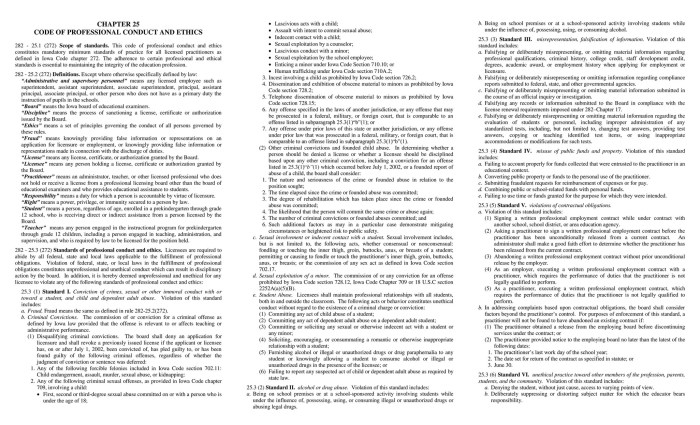The Mississippi Educator Code of Ethics serves as a guiding framework for educators, outlining the principles and values that shape their professional conduct. By adhering to these ethical standards, educators foster a positive and respectful learning environment, maintain professional integrity, and contribute to the advancement of the teaching profession.
The code encompasses a comprehensive range of ethical responsibilities, including those towards students, colleagues, the profession, and the community. It emphasizes the importance of creating a supportive learning environment that respects students’ rights and promotes their academic, social, and emotional well-being.
Mississippi Educator Code of Ethics: Principles and Values

The Mississippi Educator Code of Ethics provides a comprehensive framework of guiding principles and core values that shape the conduct of educators in the state. These principles and values serve as a foundation for ethical decision-making and professional practice.
The code emphasizes the importance of integrity, respect, responsibility, fairness, and confidentiality. These principles guide educators in their interactions with students, colleagues, the profession, and the community. By adhering to these values, educators create a positive and supportive learning environment that fosters student growth and development.
Ethical Responsibilities towards Students
- Creating a safe and supportive learning environment that promotes student well-being and academic success.
- Treating students with respect, dignity, and fairness, regardless of their background or abilities.
- Maintaining confidentiality of student information and respecting their privacy.
- Addressing ethical dilemmas in a timely and responsible manner, prioritizing the best interests of the student.
Ethical Responsibilities towards Colleagues
- Collaborating with colleagues to create a positive and productive work environment.
- Respecting the professional opinions and expertise of colleagues.
- Maintaining confidentiality of colleague information and supporting their professional growth.
- Promoting a culture of collegiality and mutual respect.
Ethical Responsibilities towards the Profession, Mississippi educator code of ethics
- Maintaining professional competence and staying abreast of best practices in education.
- Upholding the integrity of the profession and avoiding any conduct that could bring it into disrepute.
- Advocating for policies and practices that promote student learning and professional development.
- Participating in professional organizations and contributing to the advancement of the field.
Ethical Responsibilities towards the Community
- Engaging with the community to promote civic values and foster a sense of social responsibility.
- Collaborating with community organizations to provide support for students and families.
- Promoting diversity, equity, and inclusion in the school community.
- Serving as role models for ethical behavior and civic engagement.
Enforcement and Consequences
The Mississippi Educator Code of Ethics is enforced through a rigorous process that ensures fairness and due process for all parties involved. Violations of the code may result in disciplinary action, ranging from a reprimand to suspension or revocation of teaching license.
The enforcement process includes an investigation, a hearing, and an appeals process. The Mississippi Department of Education is responsible for investigating and adjudicating complaints of ethical violations.
Detailed FAQs
What are the guiding principles of the Mississippi Educator Code of Ethics?
The guiding principles include integrity, respect, fairness, responsibility, and commitment to students and the profession.
How does the code promote a positive learning environment?
Educators are expected to create a safe, supportive, and inclusive environment that respects students’ diverse needs and backgrounds.
What are the ethical responsibilities of educators towards colleagues?
Educators are expected to collaborate respectfully, maintain confidentiality, and support the professional growth of their colleagues.



